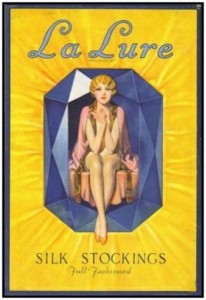In 1926 Agness “Aggie” Underwood was a young wife and mother living in Los Angeles with her husband, Harry, her two small children, and her sister Leona. Harry and Leona each had jobs outside the home, but even so the family had to cut corners to make ends meet. There may have been a boom in Los Angeles during the 1920s, but not everyone prospered. One of the small economies Aggie practiced was to wear Leona’s hand-me-down silk stockings; however, there came a time when Aggie longed for a brand new pair, and she asked Harry for enough money to buy them. Harry demurred, and an argument  ensued. In a huff, Aggie told Harry that if he wouldn’t fork over the cash, she’d get a job and earn the money herself.
ensued. In a huff, Aggie told Harry that if he wouldn’t fork over the cash, she’d get a job and earn the money herself.
In her 1949 autobiography, NEWSPAPERWOMAN, Aggie said that she didn’t really want a job, and that she had no idea where to look for one. Fate intervened in the form of a telephone call from a friend, Evelyn Connors. Evelyn told Aggie that her employer, The Los Angeles Record, needed someone to temporarily fill the position of switchboard operator. Aggie jumped at the chance, and her decision changed the course of her life.
